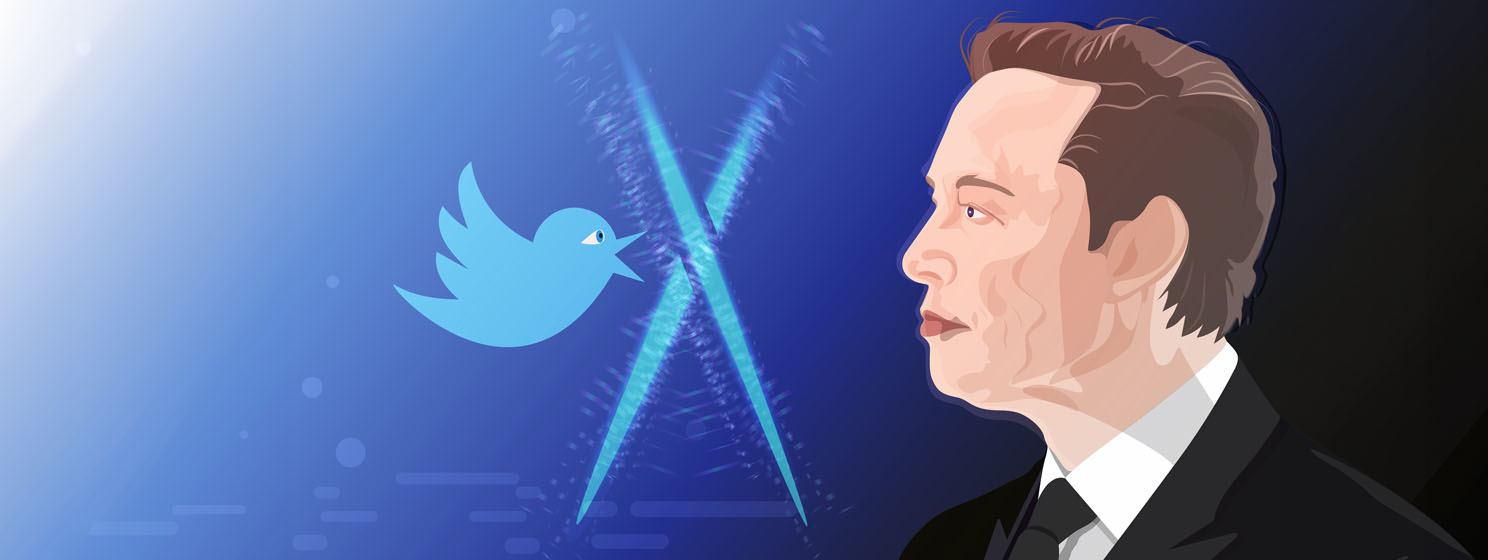|
Getting your Trinity Audio player ready...
|
The world’s richest man officially acquired Twitter on October 27, 2022. Since then, he has fired most of the workforce, allowed any kind of content to be posted with very few restrictions, and has faced an advertiser boycott that has almost wiped out the value of his original $44 billion investment.
Elon Musk, who backed Donald Trump in his successful bid to be re-elected president of the United States, paints himself as a maverick and freedom fighter against the establishment and its attempts to silence free speech.
However, a recent court filing related to The Onion’s acquisition of Infowars.com reveals that while Musk is all for free speech, he isn’t keen on allowing X users to own their content or even their usernames.
Musk claims ownership of all X accounts
In November, satirical news outlet The Onion won the bid to acquire Infowars after its founder, Alex Jones, declared bankruptcy. Jones was forced to liquidate his assets after defamation judgments related to his false claims about the Sandy Hook Elementary School shooting.
Yet, Jones wasn’t willing to give up without a fight. He filed a lawsuit against The Onion, the bankruptcy trustee, and the Sandy Hook families seeking to halt the sale. An affiliated company, First United American Companies, contested the auction results, alleging fraud and collusion.
Amidst the legal wrangling, Musk’s X Corp filed an objection concerning transferring Infowars social media accounts to The Onion. It stated that it maintains “superior ownership” over all X accounts and that they are non-transferable without X Corp’s consent.
The implications are profound: not only does this impact legal proceedings, but it implies that new users do not have the right to control the social media accounts of publications or accounts they acquire. It also means that users do not have ownership or control of their data or the accounts they use to publish and communicate on the platform.
Profound and far-reaching implications
If X Corp retains superior ownership of all accounts on its platform, users are building assets for Musk and his corporation rather than themselves. The countless hours spent building audiences and providing information ultimately build out the value of X Corp with no ownership or digital property rights for the user. Your content, brand, and data belong to Musk and his investors, and that’s that.
Yet, there are other implications: user autonomy is reduced, which could lead to the implicit erosion of the freedom of speech Musk claims to be fighting for. With X Corp able to repurpose, reassign, and suspend accounts at will, users may feel increasingly uncomfortable expressing views that could get them suspended.
With no rights to transferability, deals involving the sale of accounts become increasingly complex. Should Jeff Bezos decide to sell the Washington Post, part of the deal will be that X Corp maintains ownership of the associated X accounts. Social media accounts with tens of millions of followers will not be included in deals without the explicit consent of another corporation.
Yet, a more serious implication is that giving a corporation ultimate rights over online identities and brands is dangerous. X Corp could have the ability to control how a user or brand’s online identity is presented with the rights to modify, suspend, or delete accounts. Users could face sudden losses of reach or reputation and all of the following economic consequences. There are also significant impacts on activism and the ability to plan digital estates.
Of course, none of this is new. Users faced the same issues when Jack Dorsey was at the helm of Twitter, and Mark Zuckerberg’s Meta (NASDAQ: META) has suspended countless Facebook and Instagram accounts over the years. What is new is that Musk is in a position of unprecedented political power, blurring the lines between the commercial and political realms, meaning he has hitherto unseen influence over users’ digital and political lives.
What’s also new is that X Corp investors include Binance, Sequoia Capital, Qatar’s Investment Authority, Saudi Prince Alwaleed bin Talal, and several Russian businessmen with questionable associations. That lineup can never be a good sign for freedom and liberty.
It’s time for digital rights and digital ownership
While the law has been slow to adapt to the digital world, technological solutions exist to the problems mentioned above. Web 3.0 social media platforms give users control and ownership over their accounts and associated data.
The key difference between Web 3.0 platforms and their Web 2.0 counterparts is that data is written to the public blockchains rather than to the private databases of Silicon Valley corporations. Therefore, users suspended or removed from platforms maintain control over their data and digital identities and can port it to new platforms with little more than their cryptographic keys.
These platforms also rely on micropayments rather than advertising, negating the need for data harvesting at scale. With interactions such as likes, shares, posts, and comments earning the app creators a tiny payment, there’s no need to keep the same vast, centralized records as the first generation of social media apps do.
These platforms fundamentally challenge the models of Meta, X Corp, and others like them. They take power away from wannabe tyrants like Jack Dorsey and political powerbrokers like Elon Musk. Public proof of work blockchains are decentralized, uncensorable, immutable, and peer-to-peer; they usher in a new era of digital ownership and rights.
The time for Web 3.0 is here. The first wave of apps was built several years ago, but it was too early for mass adoption. However, with the world’s richest man in a position to influence the world’s most powerful man directly, and with his now public claim to own all X usernames, Web 3.0’s time has come. It’s time to reclaim digital sovereignty; scalable blockchain technology is the key.
Watch: sCrypt Hackathon success and the importance of public blockchain

 02-21-2026
02-21-2026 




